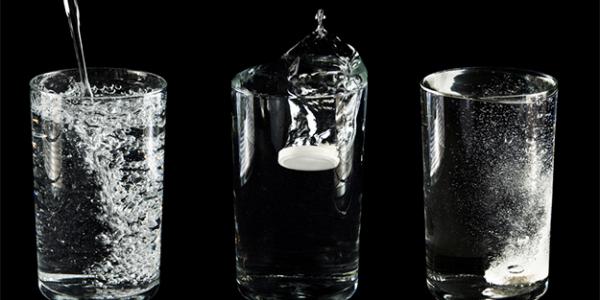
Fats Are Fabulous
Ask any beauty editor: whether or not someone truly takes care of their wellbeing shines out via their skin. We can tell, almost at a glance, whether someone gets enough exercise. (Walking 20 minutes a day is all it takes.) Whether they drink plenty of water (eight glasses is still the thinking). But taking a two-way approach to beauty also means packing your diet with plenty of skin-friendly foods which will nourish your complexion from within.
A few years ago, Sarah (Stacey) and I spent several days giving back-to-back ‘anti-ageing’ consultations to real women, at an event to launch an edition of our book The Anti-Ageing Beauty Bible. One woman in particular struck us: her skin wasn’t just papery, but so deeply lined the wrinkles were crevices. I’d pegged her as being 60+ – and was astonished to discover: this woman was only in her mid-40s.
‘Have you spent much time in the sun?’, we queried – sun damage being the obvious cause. ‘No,’ came the answer. And then: the lightbulb moment: ‘Do you get enough Essential Fatty Acids in your diet…?’ ‘I haven’t touched fat for 20 years,’ came the reply – and there we had it: living proof of what happens to skin when you don’t ‘oil the machine’ with healthy fats and oils. It’s not enough just to slather oils on from the outside; we all need to be sure we’re getting adequate ‘healthy fats’ in the diet, for skin, hair, body (and brain, too…)
When I interviewed LA-based plastic surgeon Richard Ellenbogen, MD, a few years ago, he commented: ‘Very low-fat diets suck the oils out of the skin. We see people in their 30s on low-fat diets who look like prunes.’ Dr. Udo Erasmus – who has long championed oils in the diet – agrees: ‘Our bodies need to be oiled. Essential Fatty Acids do a wonderful job. If you get the right balance, they form a barrier on the skin against loss of moisture, giving soft, smooth, velvety skin – plus the fine lines and wrinkles that come from dryness will disappear.’ (Among other vital health-protecting roles, those ‘good’ fats also transport important fat-soluble vitamins A, D, E and K around the body.)
According to Dr. Erasmus, the fastest way to tell if you’re getting enough EFAs is a DIY skin test. ‘The skin is the last organ to get the oil; if it gets there, you’ll know it’s got everywhere.’ Dr. Erasmus suggests taking a sauna or a hot bath, towelling skin dry but not applying a body cream or lotion. ‘If skin still feels papery and dry, you should up your intake of EFAs. When you’re getting enough, you should reach a point where putting a moisturiser on your skin is no longer necessary – because your skin is being lubricated from within by EFAs.’
You’ll find EFAs in vegetable oils (in particular flax seed and hemp oils), seeds, nuts and other foods like oily fish. However, with the frantic lives we all live, it’s hard to get the right dose consistently from our daily diets. Sarah and I both religiously take EFA supplements – Neubria Krill Oil – which ensure we get the correct balance of two thirds omega-3 to one-third omega-6 Essential Fatty Acids. Yes, it’s complicated: a carefully-balanced supplement takes away the guesswork. But when we suggested an EFA supplement to the forty-something above, she insisted: ‘I’ve tried them. They make me bloated.’ Since EFAs quite simply don’t do that, it was final confirmation: this woman truly was fat phobic. She wanted a cosmetic to fix her skin – and no miracle cream on the planet was going to do it.
But ironically, a healthy slurp of olive or flaxseed oil, a plate of grilled sardines – and the right supplement – would certainly have helped…
DISCLAIMER: The views, opinions and information expressed in this article and on Victoriahealth.com Ltd are those of the author(s) in an editorial context. Victoriahealth.com Ltd cannot be held responsible for any errors or for any consequences arising from the use of the information contained in this editorial or anywhere else on the site. Every effort is made by the editorial and content team to see that no inaccurate or misleading information, opinion or statement appear, nor replace or constitute endorsement from medical bodies or trials unless specified. Victoriahealth.com Ltd accept no liability for the consequences of any inaccurate or misleading data, information, opinion or statement. Information on Victoriahealth.com Ltd and in the editorials is provided for informational purposes only and is not intended as a substitute for the advice provided by your physician or other healthcare professional. You should not use the information on this website or in the editorials for diagnosing or treating a health concern or disease, or for the replacement of prescription medication or other treatment.